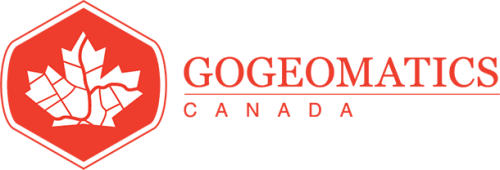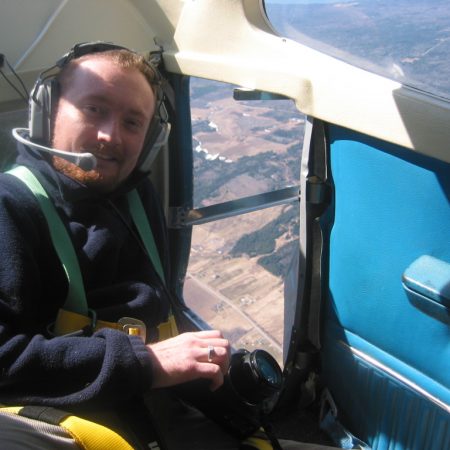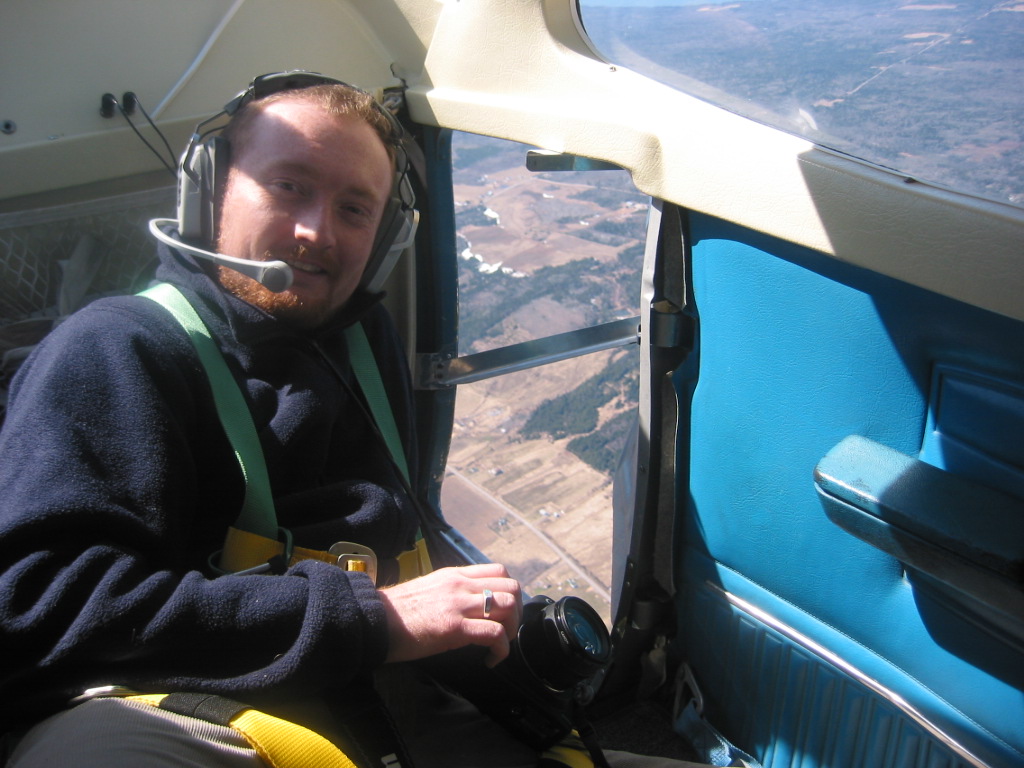Strategies for Finding a Canadian Geomatics Job
There are a number of strategies for finding a job or contract in the Canadian geomatics industry. The strategies that I describe are ones that I have used in the past and methods that I have found are the most useful for job seekers in GIS, remote sensing, surveying, engineering, and planning.
Depending on the level of effort you want to put into your job search some of these strategies might interest you or you might find that your using some of them already. I’m going to look at the pros and cons of each strategy.
Applying to Posted Geomatics Positions
This is the most common strategy and the most common one for first time job seekers and early to mid career geomatics professionals. You see a job posted online or on a company website and you apply for it. The GoGeomatics job board at gogeomatics.ca is one of these places where you can find great Canadian geomatics jobs.
Pros:
- There is a job and you can apply for it.
- The job is described (hopefully in detail).
- If there is resume tool on the job site post your resume (You can do this on GoGeomatics.ca)
Cons:
- Everyone else out there also sees the job and the competition is fierce.
GIS jobs in Canada that get posted online get hundreds of job seekers competing for them. In some areas of Canada the competition is fiercer than others. It’s not uncommon to see a job posting in Ottawa or Toronto for entry level positions like, GIS analyst or remote sensing specialist, get 200 resumes. It’s better towards east and west the farther you go, but the competition is still tough. The GIS schools are churning out lots of qualified entry level graduates. If you don’t have a post grad diploma in GIS or geomatics you are going to have a tough row to hoe. It’ not uncommon for graduates to take up to a year or more to find work this way.
Networking for Unadvertised Positions or “Under the Radar Geomatics Jobs”
The importance of networking can not be overstated. The geomatics community in Canada is relatively small. It’s in your best interest to meet and connect with other geomatics professionals. A lot of remote sensing jobs are not advertised or at least not advertised widely. Many of us (myself included) hear about a lot of jobs that go unlisted on websites but get passed around by word of mouth.
Pros:
- There is a job and you can apply for it.
- Not too many people are going to know about the job so much less competition.
- You know the guy who knows the guy whose hiring factor.
Cons:
- There may be no job description. You might just get a conversation about an opportunity and asked to submit a resume quickly.
- This is only going to happen if you are networking.
These types of opportunities are great. You get the inside track on a job that others are never going to see. As well it comes from a personal connection who most likely would not have told you about the job unless they thought you could do it. This also means the person getting your resume is also going to have the expectation you might be a good fit. If you are in Ontario you can meet up with the GoGeomatics groups that meet each month across Canada. This is a great way to start networking. People have been hired from these GoGeomatics groups and made great connections to other geomatics professionals.
Recruiters
Using a recruiter can sometimes be the only way to get into certain jobs. I’m talking about federal and provincial government contract jobs. Their are lots of recruiting companies out there and they go under all sorts of different names. Some call themselves human resource companies or staffing agencies or even talent groups. Just do a quick search on Google to find them. This is a big business and highly competitive for these agencies.
Pros:
- You can see the jobs they have listed on their sites.
- They prescreen you and can get you your security clearance ahead of time.
- They will contact you when opportunities come up they think will fit you.
- The government will often staff only from these companies so you get access to compete for the jobs if you qualify
Cons:
- The recruiter is not there to find you a job. They are there to fill a vacancy for a client.
- Recruiters take a big percentage of your pay.
- Recruiters don’t really know what geomatics is and this can lead to many false contacts. They just see GIS on your resume and thing that means you can do anything in GIS. This is never the case.
- If your resume gets submitted by more than one recruiter to the same job the client can throw your resume out of the competition.
With recruiters you will find they are keen on you when they think they can place you. But if someone better comes along they will drop you and go with the other candidate. Remember their goal is to staff for the client. If you go with a few different staffing companies and they submit your resume for the same position in competition, the client may throw your resume out as they can’t pick one agency over the other. All that being said a contract position can turn into a full time job if the client wants to keep you. They can buy out your contract from the staffing agency or wait for it to expire and then hire you.
Geomatics Career Fairs (Create Your Own)
Career fairs can be great places to look for opportunities. The companies and organizations are there to staff positions. The problem is there are few career fairs for geomatics in Canada. Some schools do have career fairs. You can create your own career fair by attending industry events and talking to the participants and companies showcasing themselves.
Pros:
- Companies are there to hire.
- You can interview on the spot and network in person.
Cons:
- There are are virtually none in Canada devoted to geomatics.
To get around the fact you can’t find any Geomatics career fairs in Canada I suggest creating you own. By that I mean go to conferences and geomatics industry events and network. I know of one Canadian company that goes to these events to recruit as well as market their products. Remember that good geomatics talent is hard to find, so companies are on the lookout for quality recruits wherever they can find them. So if you attend events bring a networking card and a resume.
Your Geomatics Portfolio & Linkedin
Everything and everyone is online these days so you should be too. As a job seeker you can only look for work so much. An online portfolio or Linkedin profile for your work (that you update!) is your store front 24/7 year round. This is a great tool that you can use to showcase your talents and interest in geomatics. Always get permission to post work product first. As well don’t be afraid to ask people to connect with you that you have met on Linkedin. Feel free to connect with me by sending me an invite. Both Linkedin and your portfolio are powerful networking tools you can use to raise your professional geomatics profile.
Pros:
- Your portfolio is always looking for work for you.
- It grows with you as your career grows.
- Linkedin continues to grow and is the preeminent professional social networking tool.
- Join professional geomatics groups like GoGeomatics Canada LinkedIn Group .
Cons:
- It requires a fairly regular commitment and quite a bit of start up work to get a portfolio together.
- LinkedIn profiles also need to be maintained and updated.
That’s nice but what about finding my dream job in geomatics?
What I have described above are the basics for geomatics job seekers. They are certainly not the only strategies. There are more advanced strategies that are focused on getting you your dream job in geomatics. As the geomatics career coach I develop strategies to take your goals and help you make them happen. The strategies in this article can be applied by just about anyone to any discipline or area of interest in geomatics. If you are interested in a more focused approach tailored to you, whatever you career level, please get in touch with me using the links in my bio below.
This article was originally posted on January 6, 2013








Hello Mr. Murphy, thank you for this informative article. My son is planning to switch his studies over to Geomatics next year. Do you know if there’s volunteer opportunities in this field? I’d appreciate any suggestions. We’re Toronto based.
Thanks for considering.
Roger
Hello,
Thanks for your post Jon. I am now not feeling to discouraged however a bit distressed with the long wait in line for a job opportunity here in Toronto. I am a recent graduate from Fleming and have also have a background of GIS in my undergraduate. So while I am still searching and waiting for a call back, do you have any suggestions on how I can build up my portfolio? Where would I look for disaster relief GIS assistance as a volunteer to add to my resume so that at least I am still active within the Geomatic field? Or, other opportunities for progress? Do you know of any Geomatica headhunting organization within Canada? I only seem to find one’s in the United States.
Thanks for your time
T
Hey Theresa,
I feel your pain. I moved to Toronto with a Physics degree, a love for mapping and analysis and was only able to scoop up customer support/processor shiftwork at Optech. My first real break was in the oilsands for a year and a bit since and even there the money’s dried up.
If you’re looking for inspiration, I recommend hitting up #gistribe on twitter every Wednesday afternoon or the myriad Slack groups out there. If you’re looking to learn something new, I recommend looking up #maptimeto which is an intersection for everything Web and GIS. Best yet, if you have a laptop, know how to use qgis/have an arc license sitting around, try hiring up Civic Tech TO. You’ll find a fantastic peer group there in a friendly environment that’s truely multidisciplinary. You’ll be able to help.
For myself, I took a risk with some of my hard-earned fort mac cash and went to a Web dev bootcamp. Money is tight for a bit longer on my end for contract work and bootcamp-sponsored internships (paid), but that’s a lot better than gis alone, and besides: GIS is a support industry. You don’t win by being awesome at arc desktop, but by being really good at that and something drastically different but complementary. I think I’ll write more about my experiences, but if you ever want to talk please come on down to a GoGeomatics event for a pint. I’d love to share more.